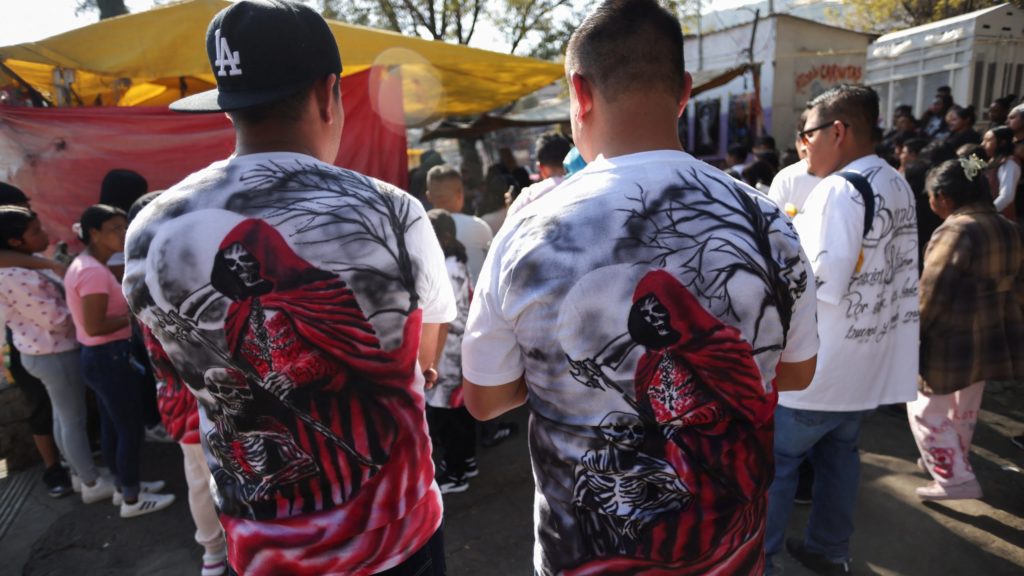Mexico's bishops have blasted the use of the folkloric La Santa Muerte by the country's ruling party as a distortion of the nation's "fundamental values" ahead of presidential and local elections, which have been marred by violence and the killing of candidates.
"As church, we energetically denounce this glorification of violence and call on all sectors of society to join a total rejection of these destructive practices," the bishops' April 24 statement said. "We must opt for recuperating and restoring the Mexico that has been expressed through the values of faith, family (and) coexistence," the statement continued. "Our nation must grow through bringing out the best in human beings, not by succumbing to the darkness of violence."
Controversy erupted when the ruling Morena party -- whose name also is a common reference to Our Lady of Guadalupe, the national patroness -- posted a photo April 20 on its official X account of a skeletal figure with the machistas admonishment: "A real man never speaks badly of López Obrador," referring to the country's President Andrés Manuel López Obrador.
T-shirts with the image and admonishment subsequently went on sale, according to Mexican media.
The image of Santa Muerte, or St. Death, drew enormous social media attention. Critics described it on social media as inappropriate amid the drug cartel violence wracking the country and noted the president's propensity to attack the voices calling for improved security.
The president often treats atrocities with insensitivity -- he laughed after being asked by reporters about an attack on three ambulances, which left two paramedics dead -- and has never spoken critically of drug cartels since taking office in late 2018, instead arguing against "demonizing" them.
Xóchitl Gálvez, candidate for a three party coalition, denounced the skeletal image as the Santa Muerte and urged voters to choose, "Life and truth."
López Obrador defended it at his April 23 press conference as a matter of religious freedom.
"It has to do with freedom, even religious freedom that speaks of death," the president said.
The president has skillfully used religious discourse throughout his term, which ends Sept. 30 as he is constitutionally prohibited from seeking reelection. He speaks often of morals and values, cites Scripture and the writings of Pope Francis and invokes Jesus Christ as a defender of the poor.
His Morena party name appeals to devotees of the national patroness, but he has forged close ties with evangelical pastors and has not identified himself as part of any denomination.
Morena candidate Claudia Sheinbaum leads all polls comfortably for the June 2 election. The party identifies as left-leaning but attracts supporters across the political spectrum, including many Catholics, according to analysts. The vote is shaping up as a violent affair with at least 39 people involved in politics killed during the campaign period, according to anti-crime group Causa en Común.
Devotion to the skeletal-looking Santa Muerte has surged in Mexico over the past 20 years, attracting devotees from all walks of life -- including drug cartels and criminal gangs -- even though the Catholic Church has denounced the figure as dangerous. The pseudo-saint often covers the complications of life in a country where popular piety is commonly practiced and the rule of law is absent -- with both victims and victimizers seeking intervention from Santa Muerte.
A priest in the western state of Michoacán told OSV News that he sees people wearing Santa Muerte medals at Mass and asking for Communion -- which they are denied -- something he attributes to a lack of formation among Mexican Catholics.
"I told them (the medal) is not compatible with the Catholic faith because Jesus Christ has said the final enemy to overcome is death," Father Andrés Larios said of his experience with a Santa Muerte devotee at Mass.

